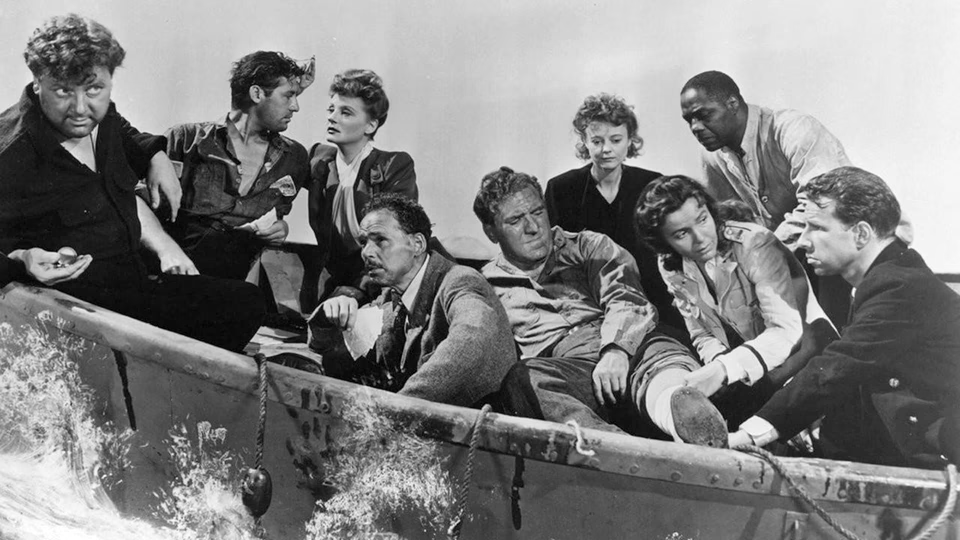Lifeboat

During World War II, several American and British survivors of a torpedoed passenger ship find themselves adrift in a lifeboat with a German prisoner.
The Academy of Motion Picture Arts and Sciences did a great injustice in 1944 by awarding the best director award to Leo McCarey for Going My Way and not Alfred Hitchcock for Lifeboat. This is a 96-minute film that takes place entirely on an oversized rowboat, and it works. If that isn’t an award worthy achievement in direction, what is?
Granted, some of the credit must go to John Steinbeck, who wrote the story, and Jo Swerling and Ben Hecht, who wrote the screenplay, as well as the performers, particularly Walter Slezak, but it’s Hitchcock that manages to pull off the seemingly impossible task of not only maintaining the viewer’s interest, but riveting it to the screen for an hour and a half.
Lifeboat is an intelligent examination of human nature and mob mentality disguised as a wartime propaganda thriller. While some of said propaganda aspects do drag the film down (ultimately hurting Lifeboat’s replay value), Hitchcock still manages to deliver a very good film that raises a lot of questions that are still relevant today.